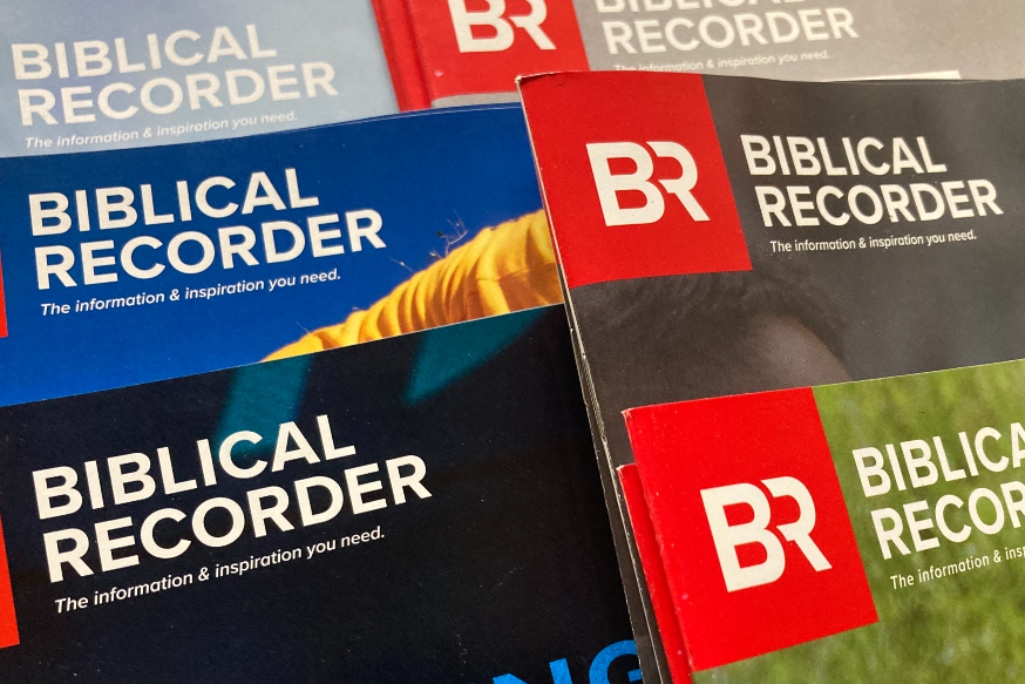Communication is the lifeblood of relationships. Families function well and enjoy healthy, happy relationships to the extent that communication remains strong. This is also true in the worlds of business, government and the local church.
People want to know what is going in the world where they live and work. It’s not pleasant to live in the dark on matters that concern us or those close to us.
That’s why Baptists started publishing state newspapers very early in the history of state conventions.
Two decades before the founding of the Southern Baptist Convention, the Georgia Baptist Convention, now called the Georgia Baptist Mission Board, was established in 1822. The same year, the first Baptist state news journal, The Christian Index, was also launched.
The second Baptist newspaper, the Western Recorder, was published in 1825 in Kentucky, predating the birth of the Kentucky Baptist Convention by more than a decade.
In 1828, the Religious Herald began to serve Virginia Baptists by providing news and information about the mission of Baptists in their state. The state convention, the Baptist General Association of Virginia, had formally organized in 1823.
The Baptist State Convention of North Carolina was organized in 1830. One of the men who helped draft the new convention’s constitution was Thomas Meredith. In less than three years, Meredith published the first edition of the Biblical Recorder on Jan. 17, 1833, under the name Baptist Interpreter, later changing it to the Biblical Recorder and Journal of Passing Events in January 1834. A year later, it was shortened to the present name, Biblical Recorder.
There are several pieces of information that I want to highlight with this short history lesson.
First, the Biblical Recorder celebrates 185 years of ministry this month. Baptists in the North State have depended on the Recorder to provide news and information that is important to our mission in our communities, state, nation and world.
Second, among the first four Baptist state newspapers, only the Western Recorder and Biblical Recorder still publish a bi-weekly printed newspaper. Virginia’s Religious Herald ceased printing a state newspaper in 2013 and merged with the moderate Baptists news agency, Associated Baptist Press, which is now known as Baptist News Global. The Christian Index halted its print edition in 2016, favoring the website as its primary communication tool.
As I have said in previous editorials, the Biblical Recorder is now the only regularly published Baptist newspaper on the East Coast of the United States. In recent years, Baptist newspapers in both South Carolina and Florida moved to a monthly magazine format. Both also maintain a healthy online presence for communicating their message.
Baptist conventions in the northern states and New England have always been fewer in number. Consequently, most have depended on smaller newsletters and magazines in the past to meet their communication needs. Today, they depend on websites and social media for disseminating their message.
Farther inland, a number of state conventions still publish a newspaper for the Baptist family in their states including Kentucky, Tennessee, Alabama, Mississippi and others.
Third, changes in technology have created many new communication tools since the birth of newspapers. Radio and television were the first to reshape the landscape of communication. But the great seismic shift happened with the development of computers and the inevitable birth of the Internet. At breakneck speed, an avalanche of electronic tools swept through the world of communication. Social media, podcasts, video on demand, blogs and other developments have changed the way we communicate.
Fourth, regardless of the changes in the world of technology, information that is truthful and accurate will always have an audience. And I should underscore that new tools are not always a cause to discard those that are older and proven.
About half of all readers still prefer to hold the printed piece in their hands, and the shift toward the print seems to be gaining popularity. Take note that magazines are still very popular. Also, note that neither LifeWay nor Barnes and Noble have closed their book stores.
Going back to my opening line, communication is the lifeblood of relationships. There are many news and information outlets available today. But only the Biblical Recorder is designed to give Baptists in our state the material they need to know about the cooperative ministries and gospel partnerships that thrive among North Carolina Baptists and Southern Baptists. We tell the stories about so many outstanding ministries like the work of the Baptist Children’s Homes and Fruitland. We report the effectiveness of Cooperative Program dollars around the world and cultural challenges our church members face daily.
We hope the pastors in North Carolina will choose to use the resources of the Biblical Recorder to equip their congregations with important news and information that strengthens giving, evangelism, discipleship, missions, prayer and all other disciplines of the Christian walk.
Pray for us. We always welcome your thoughts and comments. Thank you for allowing the BR team to be your partners in the Great Commission.


